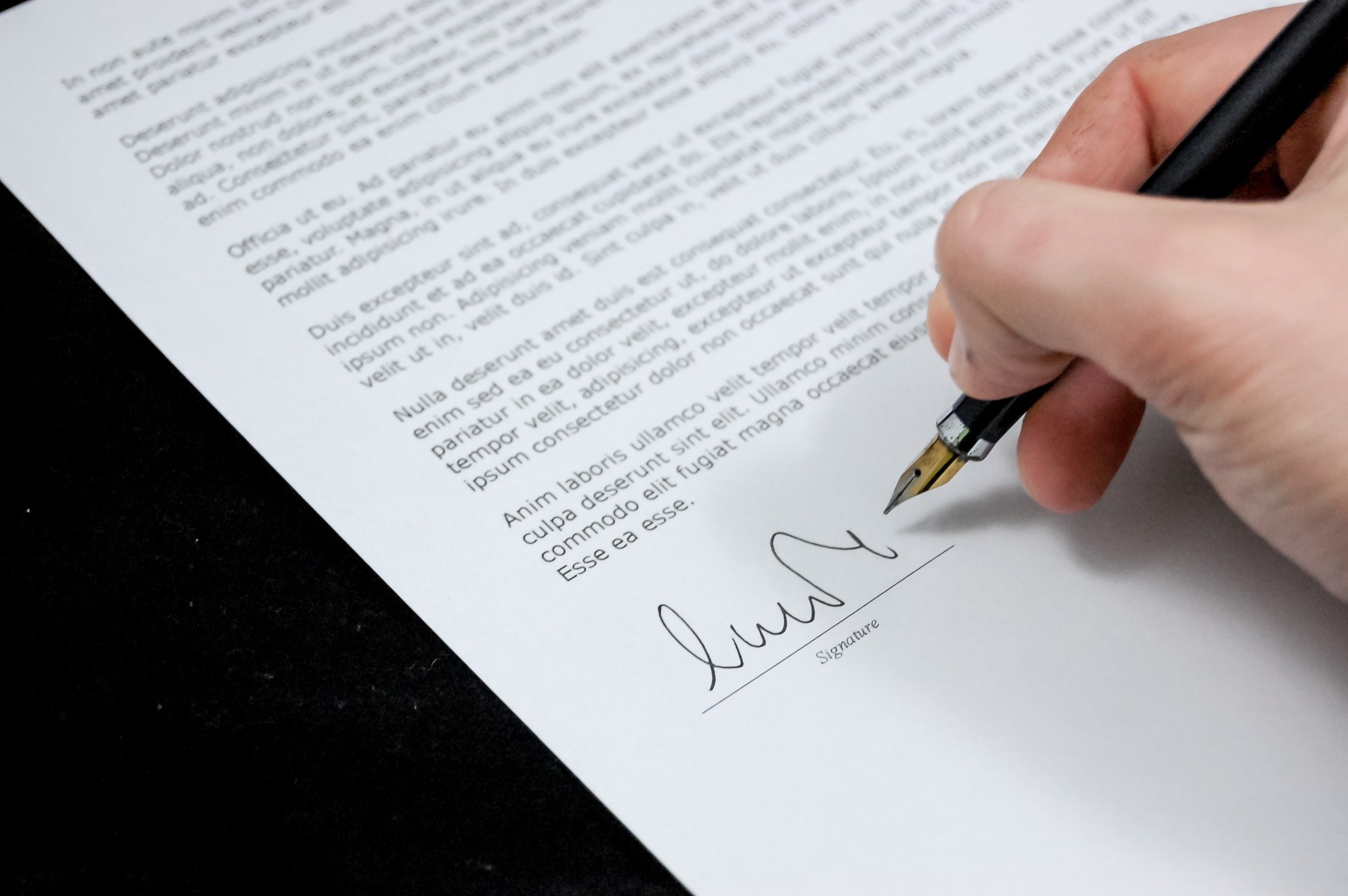In today’s competitive business landscape, the ability to win clients and influence markets is crucial for success. One powerful tool that can help businesses achieve these goals is a well-crafted Request for Proposal (RFP) proposal. By effectively presenting their products or services in response to an RFP, companies can showcase their expertise, differentiate themselves from competitors, and ultimately secure lucrative contracts. However, writing a compelling RFP proposal requires a unique skill set that not all organizations possess. That’s where an RFP proposal writer comes in. In this article, we will explore how businesses can leverage the expertise of an RFP proposal writer to gain a competitive edge and achieve their growth objectives in today’s dynamic market.
What is an RFP Proposal Writer?
A Request for Proposal (RFP) proposal writer is a skilled professional who specializes in creating compelling proposals that help companies win new business contracts. This role involves understanding the client’s needs, researching the market and competition, and writing persuasive and high-quality content to showcase the company’s capabilities.
One of the key responsibilities of an RFP proposal writer is to effectively communicate the value proposition of their company. This requires a deep understanding of not only their own organization but also the client’s industry, target audience, and specific requirements. By leveraging this knowledge, an RFP proposal writer can craft customized proposals that resonate with potential clients and demonstrate how their company can solve their unique problems.
Moreover, an RFP proposal writer must have excellent attention to detail and organizational skills. The process of responding to an RFP often involves managing large volumes of information from various internal teams while adhering to strict deadlines. Thus, a successful RFP proposal writer not only has exceptional writing abilities but also possesses project management expertise to ensure all elements are integrated smoothly into a cohesive response.
In summary, being an RFP proposal writer requires more than just being a skilled wordsmith; it demands strategic thinking, research abilities, attention to detail, organizational skills, and excellent communication capabilities. By mastering these aspects and consistently delivering winning proposals that capture the essence of both their own organization and potential clients’ needs, RFP proposal writers are invaluable assets in helping businesses secure new contracts in competitive markets.

The Importance of RFP Proposals for Businesses
RFP proposals, short for Request for Proposal proposals, are vital for businesses looking to win clients and dominate in their respective markets. These documents serve as a powerful tool in attracting new business opportunities by showcasing a company’s expertise and unique offerings. RFP proposals provide a structured framework for businesses to present their solutions, highlight their competitive advantages, and demonstrate how they align with the client’s needs. In this highly competitive landscape, having an effective RFP proposal can give businesses the edge needed to stand out from the competition and secure lucrative contracts.
One of the key reasons why RFP proposals are crucial is that they help establish credibility. When a potential client sends out an RFP, it means they are seeking solutions and are open to exploring different options. By submitting a well-crafted proposal that addresses all the client’s requirements and demonstrates relevant experience, businesses can position themselves as reliable experts capable of delivering value. This not only builds trust but also increases the likelihood of being chosen over competitors who may not have put in the same level of effort.
Moreover, RFP proposals offer businesses an opportunity to showcase their creativity and innovation. Although responses need to adhere to certain guidelines provided by the client, companies can still find ways to differentiate themselves through thoughtful recommendations or ideas that go beyond what is explicitly requested. Adding a touch of uniqueness can make a proposal memorable and increase its chances of standing out among other submissions.
Key Skills and Qualifications of an RFP Proposal Writer
One of the key skills that sets a successful RFP proposal writer apart is the ability to effectively communicate complex ideas in a concise and compelling manner. The writer must have a deep understanding of the subject matter and be able to distill it down into clear and concise language that resonates with the reader. This skill requires not only strong writing abilities, but also excellent research skills and attention to detail.
In addition to communication skills, strong project management skills are crucial for an RFP proposal writer. Managing deadlines, organizing information, and coordinating with team members all require a high level of organization and attention to detail. A successful proposal writer will develop systems and processes to ensure that all aspects of the proposal are handled efficiently.
Another important qualification for an RFP proposal writer is knowledge of the target market or industry. Understanding client needs, challenges, and trends allows the writer to tailor their proposals more effectively. This knowledge can be gained through research, networking, and staying up-to-date on industry news. By demonstrating a deep understanding of their clients’ industries, RFP proposal writers can build trust with potential clients and increase their chances of winning new business.

Tips for Writing a Winning RFP Proposal
One of the keys to writing a winning request for proposal (RFP) proposal is to thoroughly understand the client’s needs and goals. Take the time to research their industry, competitors, and overall objectives. This will allow you to tailor your proposal specifically to their requirements, demonstrating that you not only understand their business but are also uniquely positioned to help them succeed.
Another important tip is to focus on clarity and conciseness in your writing. Clients reviewing RFP proposals often have limited time and attention spans, so it is crucial to communicate your ideas effectively without overwhelming them with unnecessary details. Use bullet points, headings, and subheadings to make your proposal easy to navigate and skim through. Additionally, consider using visuals such as charts or graphs when applicable, as they can help convey complex information more easily.
Lastly, don’t forget about the importance of proofreading and editing your proposal before submitting it. Careless spelling mistakes or grammatical errors can create a negative impression on clients who expect professionalism from potential partners. Take the time to carefully review your proposal for any errors or inconsistencies in language or formatting.
By understanding the client’s needs, being clear and concise in your writing style, and ensuring a polished final product through thorough proofreading/editing procedures; you will be well on your way towards creating a winning RFP proposal that stands out from the competition.
Best Practices for Influencing Markets with RFP Proposals
In today’s competitive business landscape, one of the most effective ways to win clients and influence markets is through Request for Proposal (RFP) proposals. These documents are more than just a response to a potential client’s needs; they represent an opportunity to showcase your expertise, differentiate yourself from competitors, and ultimately secure new business. To maximize your impact in the market with RFP proposals, it is essential to follow best practices that set you apart from the crowd.
Firstly, carefully analyze and understand the RFP requirements. Take the time to thoroughly read through each section and highlight key points. It’s crucial to clearly address every specified requirement in your proposal and highlight how your solution aligns with their needs. By doing this, you not only demonstrate your attention to detail but also show that you genuinely understand their challenges.
Secondly, make sure your proposal tells a compelling story. Don’t simply list off features or benefits; instead, focus on communicating a clear narrative that speaks directly to the client’s pain points. Highlight success stories from previous clients or relevant case studies that demonstrate how you can deliver tangible results. Craft persuasive language that resonates with decision-makers and conveys confidence in your ability to solve their problems.
Lastly, keep in mind that timing is critical when submitting RFP proposals. Many organizations set deadlines for submissions with little flexibility. Be proactive by reaching out early in the process to ask clarifying questions or request additional information if necessary.

Case Studies: Successful Client Wins with RFP Proposals
Case studies serve as powerful tools for RFP proposal writers, showcasing their ability to win clients and deliver successful outcomes. One such example is a case study involving a digital marketing agency that secured a major contract with a global e-commerce giant. The agency meticulously crafted an RFP proposal that not only highlighted their expertise in driving online sales but also demonstrated an understanding of the client’s specific goals and challenges.
Through thorough research, the agency identified key pain points faced by the e-commerce giant – low conversion rates and ineffective customer targeting. They proposed a comprehensive strategy that included personalized email campaigns, website optimization, and social media advertising. The client was impressed by the depth of analysis and strategic thinking displayed in the proposal, ultimately awarding the contract to this digital marketing agency.
Another fascinating case study involves an IT consulting firm that won a government contract through its RFP proposal. This particular firm recognized that one of the biggest challenges faced by government agencies was ensuring data security while transitioning to cloud-based platforms. To address this concern, they developed a robust cybersecurity plan that incorporated cutting-edge encryption technology, multi-factor authentication systems, and regular vulnerability assessments.
Their attention to detail and commitment to addressing potential risks set them apart from other competitors bidding on the same project. The innovative approach showcased in their RFP proposal persuaded the government agency of their ability to safeguard sensitive data effectively. As a result, they not only won the contract but also established themselves as leaders in providing secure IT solutions within governmental environments.
Conclusion: Harnessing the Power of RFP Proposal Writers
In conclusion, it is clear that harnessing the power of RFP proposal writers can be a game-changer for businesses looking to win clients and influence markets. These skilled professionals have the unique ability to translate complex ideas into concise and compelling proposals that resonate with decision-makers. By tapping into their expertise, companies can differentiate themselves from their competitors and increase their chances of securing lucrative contracts.
Furthermore, RFP proposal writers bring a fresh perspective to the table. Their objective viewpoint allows them to identify gaps in a company’s strategy or propose innovative solutions that may have been overlooked by internal teams. This outside perspective can be invaluable in helping businesses stand out from the crowd and present themselves as industry leaders.
Ultimately, investing in RFP proposal writers not only saves businesses time and resources but also enhances their overall competitiveness in today’s fast-paced market. With their help, companies can craft winning proposals that effectively communicate their value proposition and secure new opportunities for growth. It is clear that these talented individuals are an essential asset for any organization looking to thrive in the world of business development.
